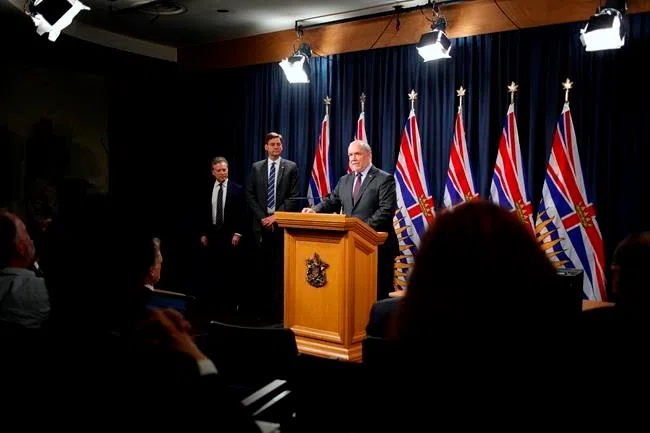
B.C. asks court to affirm right to protect environment from heavy oils
VICTORIA — British Columbia’s fight against the Trans Mountain pipeline expansion is heading to court with the New Democrat government seeking affirmation that it has the right to protect its environment from the threat of a heavy oil spill.
The reference case to B.C.’s Court of Appeal throws further uncertainty on the project as cabinet ministers said Thursday it is unlikely a decision will be reached before Kinder Morgan Canada’s May 31 deadline for getting some assurance it can proceed without the threat of more delays.
Premier John Horgan said the reference case is aimed at protecting the province’s coastline and economy from the harms of an oil spill.
“By issuing this reference today we’re confirming we have the jurisdiction to ensure that if there was a catastrophic diluted bitumen spill we have the ability to take steps to protect our economy and our environment,” Horgan said.
